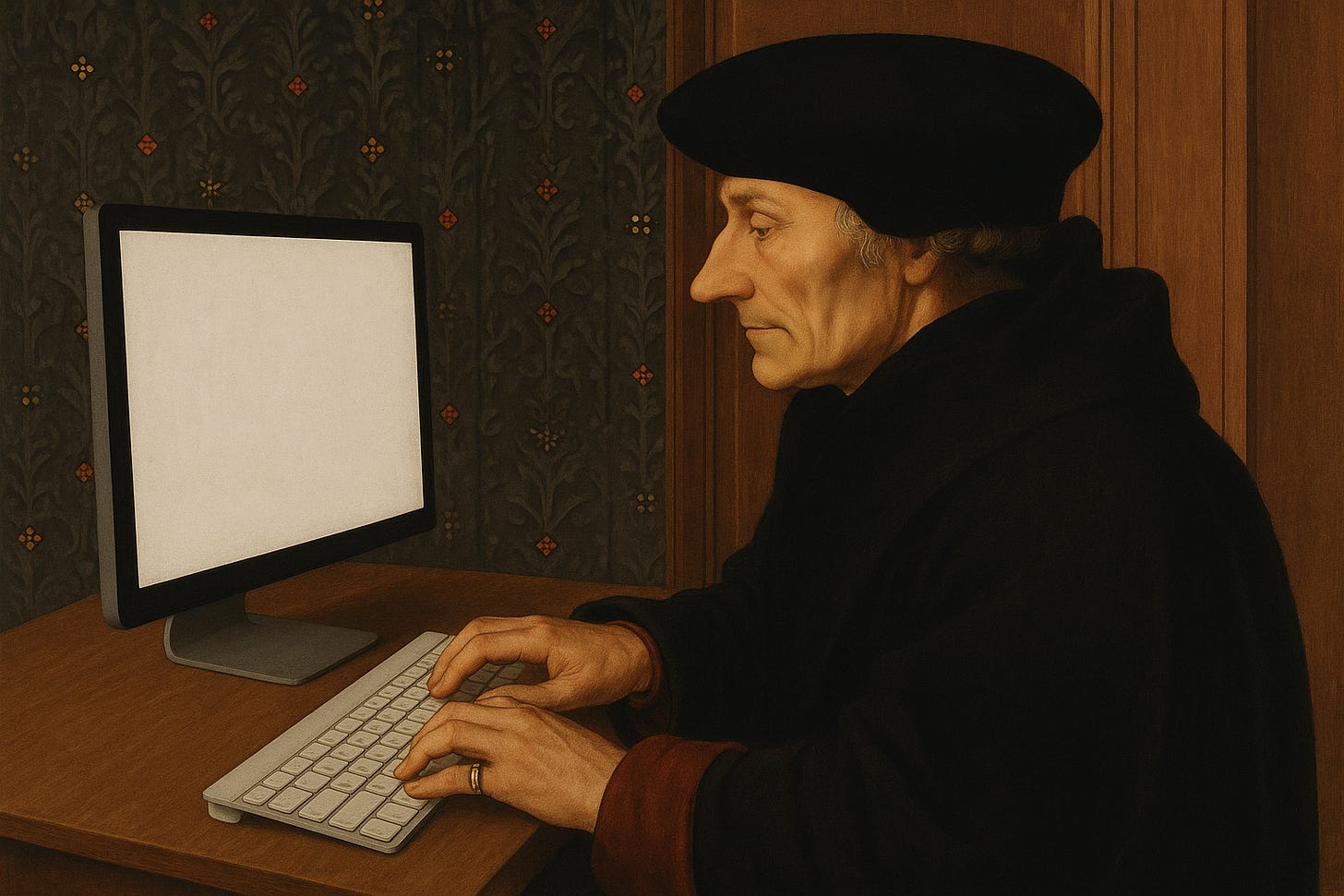An Abundance of Words, A Scarcity of Taste
Erasmus, LLMs, and Taste
“The first draft of anything is shit” — Ernest Hemingway
Old books have a special gravity. The older a book, the louder it speaks. A book that survives centuries is like a fine wine, concentrated, potent, and a strong signal of enduring value.
Erasmus wrote "On Copia of Words & Ideas" in 1512, a guide to writing style built on the principle of "abundance". Don't stop at one sentence, but rewrite it a hundred ways. Build up an arsenal of words and variations until the page is overflowing. The point wasn’t speed. It wasn’t productivity. It was judgment and taste. Out of excess comes refinement.
Take an idea and expand it, simplify it, break it into parts, compare it to stories, embellish it, shift its perspective, link it to culture. Erasmus even rewrote the simple line “Your letter pleased me greatly” in over 150 variations. The point wasn’t productivity, it was taste, strengthened through abundance.
Erasmus would have adored large language models. Variations conjured in an instant. Stories summoned from the spirits of our ancestors. A single idea stretched, twisted, condensed, remixed in seconds. He would have set the page ablaze.
His lesson endures: abundance is worthless without judgment. Today we drown in words. AI slop, SEO sludge, content mills. The noise is endless. Generated garbage is everywhere, but taste is rare. Taste is what turns words into art.
The tools are new, the principles are old. Abundance without judgment is waste. We gain a strange and powerful advantage when we let the machine do some heavy lifting. We can use it to generate an orchard of possibilities, but it's still good judgment that plucks the fruit worth keeping, and throws away the rot.
“If I had more time, I would have written a shorter letter.”
Blaise Pascal


